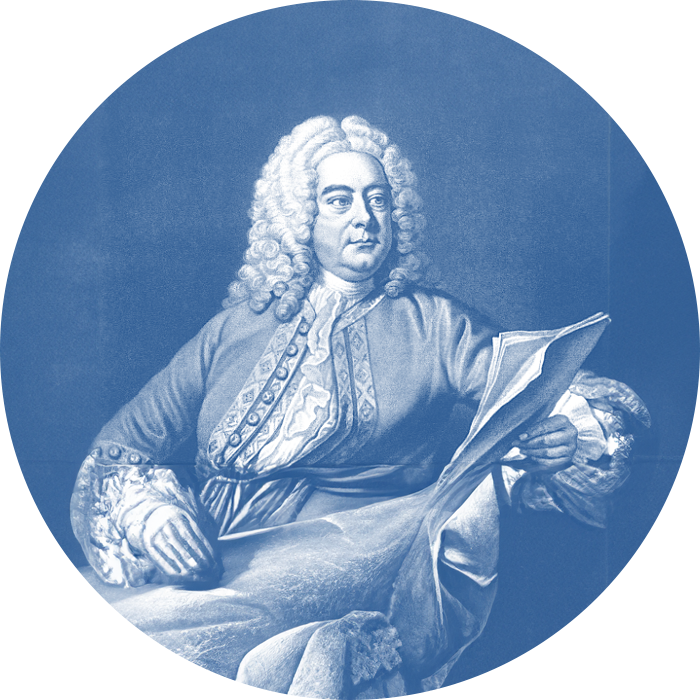The Baroque composer Georg Friedrich Händel (1685-1759) was born in Halle, Germany, and showed a precocious musical talent, much to the displeasure of his father, who had intended him for a legal career. After studying in Italy, Handel moved to England, where he became one of the leading composers of his time. He excelled in almost every musical genre of his time: operas, oratorios, instrumental and vocal music. Handel is particularly famous for his oratorios, including ‘Messiah’, which remains one of the most famous choral works in the world. A blend of German, Italian and English musical influences, his music inspired many composers after him. Favoured by the British royal court, Handel composed works for grandiose festivities, such as ‘Water Music’ and ‘Music for the Royal Fireworks’. Despite financial setbacks and health problems, Handel continued to compose and conduct. One of his last major works, the oratorio ‘Jephtha’, composed when he was losing his sight, is considered to be one of the high points of his career. Handel's influence on the development of baroque and classical music is immense, and his works continue to be widely performed and admired today.


